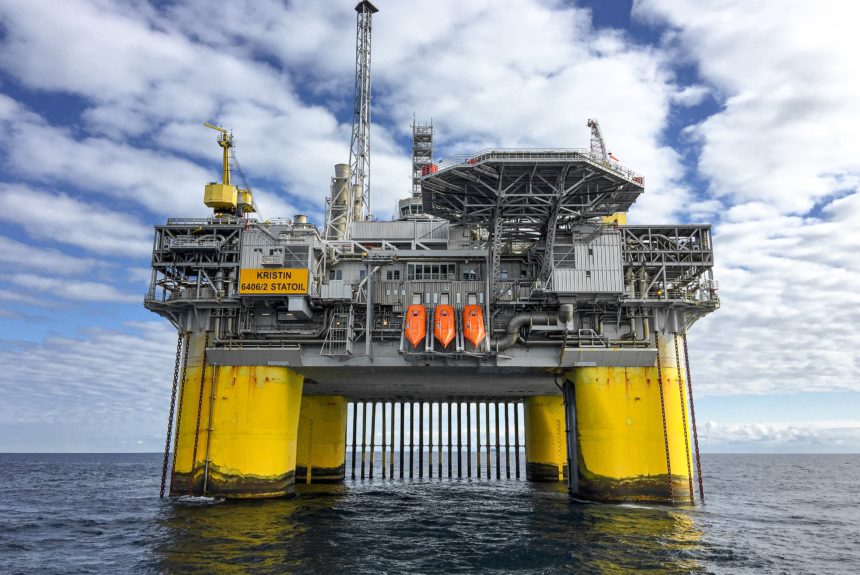Environmentalists often demonize the oil and gas industry. But this industry plays a significant role in helping the world achieve net-zero carbon emissions, which would involve achieving an overall balance between emissions produced and emissions taken out of the global atmosphere. A recent webinar hosted by the Atlantic Council discussed the role oil and gas play in achieving this goal.
This webinar was moderated by Helima Croft, the Managing Director and Global Head of Commodity Strategy for RBC Capital Markets. Panelists included Al Cook, Executive Vice President of Exploration and Production International for Equinor; Juliana Garaizar, Vice President of Innovation for Greentown Labs; and Greg Sharenow, Portfolio Manager of Real Assets for PIMCO. The Atlantic Council’s own Ambassador Richard Morningstar, the founding chairman of the council’s Global Energy Center, also gave remarks.
Cook spoke about the “new normal” the world will be entering into post-pandemic and emphasized that energy companies now have to live in a world where net-zero is not a goal but an expectation. He noted that what energy companies do to reduce their carbon emissions will be one of the most basic standards by which consumers judge them in the coming years. “For as long as the world demands oil and gas, we should produce it with the fewest emissions possible,” Cook argued.
The other panelists were aligned with this assessment, pointing out that innovation and consumer sentiment are moving toward a carbon-free future. Garaziar noted that technology development is occurring as quickly as possible, spurred on by large companies who have lofty carbon reduction goals to meet. Sharenow also referenced a recent analysis from the International Energy Agency on how the globe gets to net-zero carbon emissions by 2050, referring to it as a “signal and wakeup call” for consumers, investors, developers, and policymakers.
Speaking specifically about the oil and gas industry, Cook indicated that there is context needed when discussing industry decarbonization:
“Eighty percent of the world’s energy comes from fossil fuels – it is easy to forget that during all the attention renewables get in this day and age. To the frustration of many, oil and gas demand is growing [and] it is becoming evident that oil and gas demand will almost certainly grow through the 2020s.”
He explained that Equinor, the company he helps lead, has taken several steps to reduce carbon emissions. For example, through technology and innovation, Equinor has reduced the carbon emissions for a standard barrel of oil to 8 kilograms – down from the global average of 17 to 18 kilograms. “We need to acknowledge that the world is going to demand oil and gas for decades to come, so it matters how we produce it, and it matters how many emissions it produces,” Cook added.
Equinor is also looking at investments in renewable energies, like blue hydrogen, green hydrogen, and wind power. Cook emphasized that operationally, the experience held by oil and gas companies transfers well to offshore wind development. For example, Equinor is now playing a role in developing the Dogger Bank wind project – the world’s largest offshore wind project that is currently under construction off the coast of the United Kingdom.
More generally, Cook emphasized the need for streamlined regulatory and permitting processes to allow for faster implementation of renewable developments and new decarbonization technologies. All panelists explained that decarbonization and the energy transition are incredibly dependent on global innovation and that the policies that stand in the way of progress should be changed. Sharenow emphasized that cooperation and collaboration are vital elements needed from all energy stakeholders to move us toward a net-zero world.
In closing, Cook commented that, as our global energy makeup changes, it is important to heed: “We need to remember that this is an energy transition – not an energy switch.”
Fossil fuel companies continue to play an essential role in our energy makeup and will play a central role in decarbonization moving forward. A market-based approach that allows for a diverse energy makeup is the correct way to move toward a net-zero future.
Kelvey Vander Hart is a native Iowan, a member of the American Conservation Coalition, and a communications specialist at Reason Foundation.
The views and opinions expressed are those of the author’s and do not necessarily reflect the official policy or position of C3.
